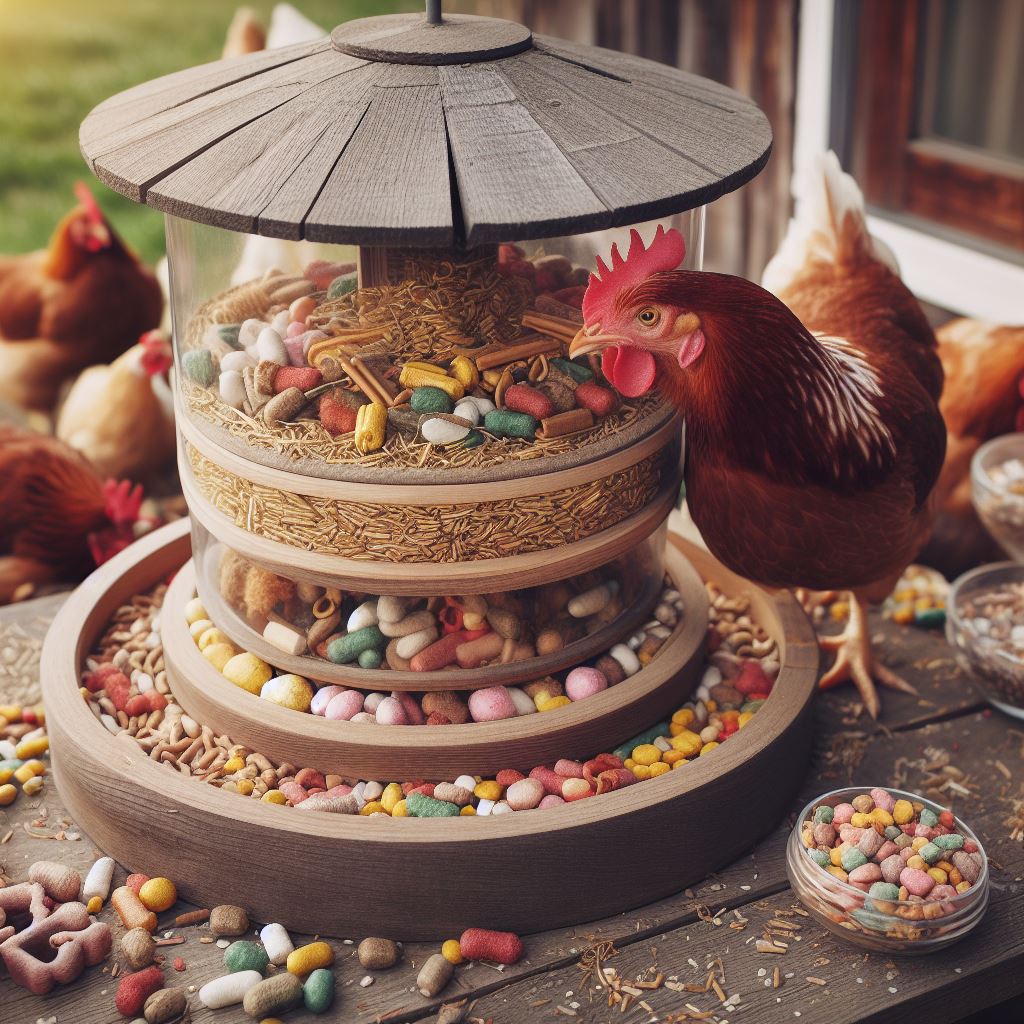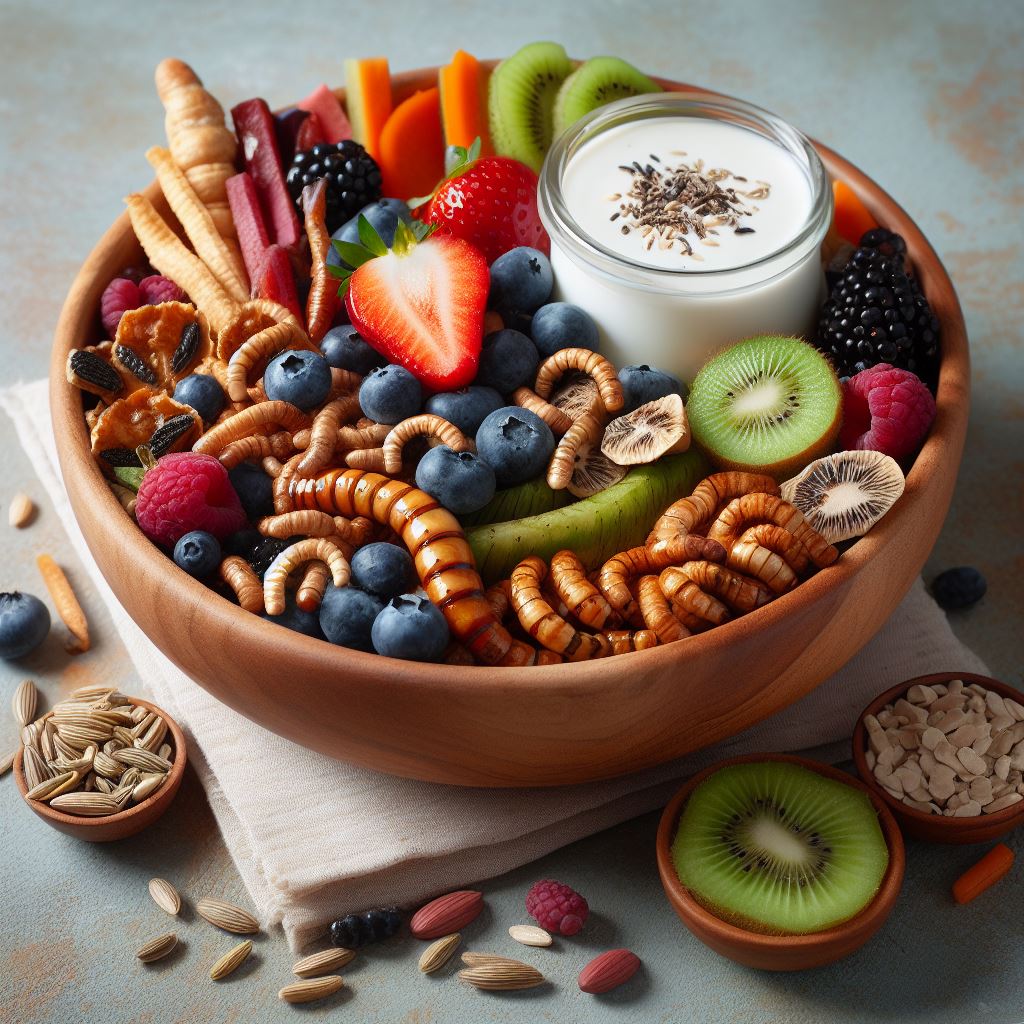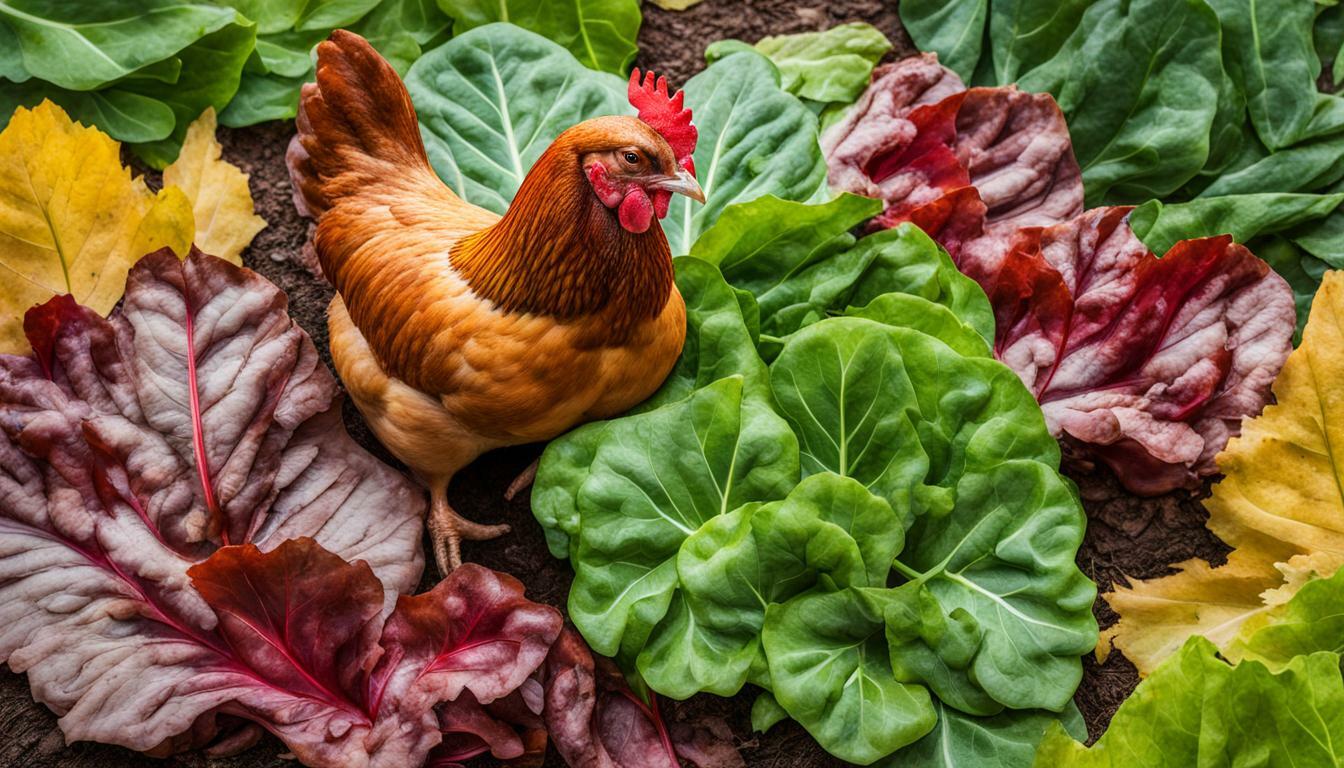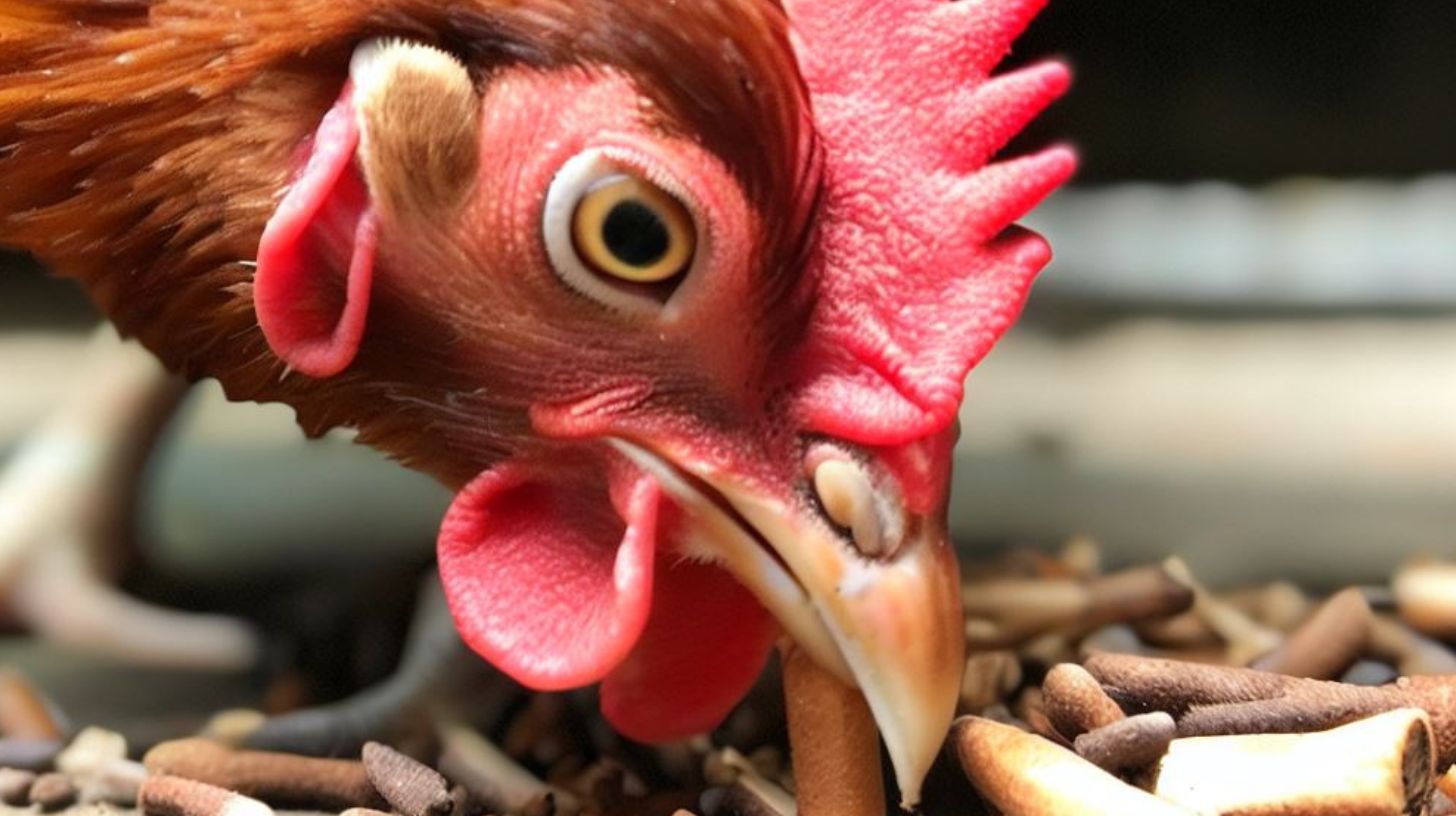What Can Chickens Eat As A Treat?

Table of content:
As a chicken owner, you want to make sure your flock is healthy and happy. An important part of their care is making sure they have a balanced diet. While the majority of their diet should come from quality chicken feed, giving your chickens the occasional treat can be a great way to mix things up.
Treats should make up no more than 10% of your chickens’ total food intake. Giving too many treats can lead to weight gain or nutritional deficiencies. Moderation is key when it comes to chicken treats.
When choosing treats, look for healthy options that provide nutritional value. Stay away from foods that are high in sugar, salt, or fat. Some people’s foods, like chocolate or caffeine, are toxic to chickens. It’s important to do your research before offering a new treat.
This guide will explore some of the best treatment options to supplement your flock’s diet. We’ll also look at what foods you should avoid giving your chickens. Let’s get started!
 Top Treats for Chickens
Top Treats for Chickens
Here are some of the top nutritious treats to give your chickens:
1. Berries
Berries like strawberries, raspberries, blackberries, and blueberries make excellent chicken treats. They provide important nutrients like vitamin C and antioxidants. Berries are low in fat and calories. Offer berries fresh or mix them into treats like yogurt.
2. Mealworms
Mealworms are a great source of protein for chickens. They contain essential amino acids that promote growth and egg production. Just a few mealworms per chicken make a nutritious daily treat.
3. Oatmeal
Plain oatmeal provides important carbohydrates. Mix oatmeal with raisins, seeds, mealworms, or berries for a nutritious homemade treat blend. Cooked oatmeal can also be served warm during cold months.
4. Pumpkin
Both the flesh and seeds of pumpkins are beneficial for chickens. Pumpkin flesh provides vitamin A, potassium, and beta-carotene. The seeds help roundworms and promote digestion. Offer pumpkin baked, raw, or blended into treats.
5. Plain Yogurt
Plain yogurt helps maintain healthy gut bacteria and probiotics. The live cultures aid digestion and the calcium strengthens eggshells. Always opt for unsweetened yogurt when treating chickens.
Other Healthy Treats for Chickens
In addition to the top treats listed above, there are many other nutritious treats chickens enjoy. Here are some additional options:
Fresh Produce
Chickens love greens like spinach, kale, chard, lettuce, and broccoli. They also enjoy fruits like watermelon, cantaloupe, apple, pear, and banana. Cut larger produce into smaller pieces before feeding. Rotate produce to provide variety.
Pasta and Rice
Cooked pasta, rice, and whole grains like barley or quinoa offer a healthy dose of carbohydrates. Avoid pasta with added salt or oil. Mix in veggies or collagen for extra nutrition.
Seeds and Grains
Black oil sunflower seeds, flax seeds, cracked corn, wheat, millet, and oats are flock favorites. Offer 1-2 tablespoons per chicken scattered in their pen or mixed into treats.
Herbs
Herbs like parsley, basil, cilantro, dill, and mint provide vitamins and polyphenols. Chop fresh herbs over treats or hang bundles in coops for chickens to self-forage.
Insects
In addition to mealworms, chickens relish other insects like black soldier fly larvae, crickets, grasshoppers, and grubs. Insects offer protein and natural foraging enrichment.
Foods to Avoid Feeding Chickens
While chickens can enjoy a wide variety of treats, some foods are toxic or harmful to chickens. Avoid the following:
- Avocados – contain persin, which is toxic to chickens
- Chocolate – contains theobromine, poisonous to chickens
- Caffeine – stimulant that can cause cardiac issues
- Salty foods – can cause kidney problems
- Raw potato or tomato – contain toxins
- Dried beans or peas – contain lectin, toxic to chickens
- Greasy foods – can cause digestive upset and diarrhea
It’s also important to avoid overfeeding treats like scratch grains or corn, which are high in carbohydrates but low in nutrients. Moderation is key.
Tips for Feeding Chicken Treats
Follow these tips for safely integrating treats into your chickens’ diet:
- Limit treats to 10% of total feed – Stick to the 90/10 rule to prevent obesity and deficiency
- Vary treats for balanced nutrition – Rotate different healthy treat options throughout the week
- Chop large treats into pieces – Helps prevent choking and gives all birds access
- Offer treats in moderation – 1-2 tbsp per chicken maximum for most treats
- Store treats properly – Keep perishable treats refrigerated and dry treats in sealed containers
- Remove uneaten treats – To avoid spoilage, waste, and vermin
- Research new treats thoroughly – Ensure treats are chicken-safe before offering
Healthy Homemade Chicken Treat Recipes
Making your own homemade chicken treats is easy and allows you to control the ingredients. Here are some healthy recipes to try:
Yogurt Parfait Chicken Treat
- 1 cup plain yogurt
- 1⁄4 cup black oil sunflower seeds
- 1⁄4 cup dried cranberries
- 2 tbsp flaxseed
- 1⁄4 cup blueberries
Mix together and serve. Provides probiotics, fiber, antioxidants, protein, omega-3s, and key vitamins.
Oatmeal Energy Bites
- 1 cup old fashioned oats
- 1⁄4 cup peanut or almond butter
- 1⁄4 cup ground flaxseed
- 1/3 cup dried fruit like raisins, cranberries or cherries
- 1⁄4 cup shredded coconut
- 1⁄4 cup mini chocolate chips (optional)
- 1⁄4 cup honey
Combine ingredients. Roll into balls and refrigerate until firm. Provides lasting energy and nutrients.
Fruity Chicken Yogurt Bark
- 2 cups plain Greek yogurt
- 1⁄2 cup blueberries
- 1⁄2 cup diced mango or pineapple
- 1⁄4 cup shredded coconut
- 2 tbsp honey
Stir yogurt, honey, and most of fruit together. Spread on a parchment-lined pan. Top with remaining fruit and coconut. Freeze for 2-3 hours until firm. Cut into squares and serve.
Conclusion
Adding treats can be a great way to supplement your chickens’ diet and give them something fun to look forward to. However, moderation is key, as treats should never make up more than 10% of total feed. Focus on providing treats that are nutritious and avoid anything potentially toxic to chickens. By following these guidelines, you can keep your flock happy, healthy, and treat them right!
Welcome. I’m Adreena Shanum, the proud owner of this website, and I am incredibly passionate about animals, especially poultry. I founded adreenapets.com as a labor of love, stemming from my desire to share my knowledge and experiences with poultry enthusiasts worldwide.




